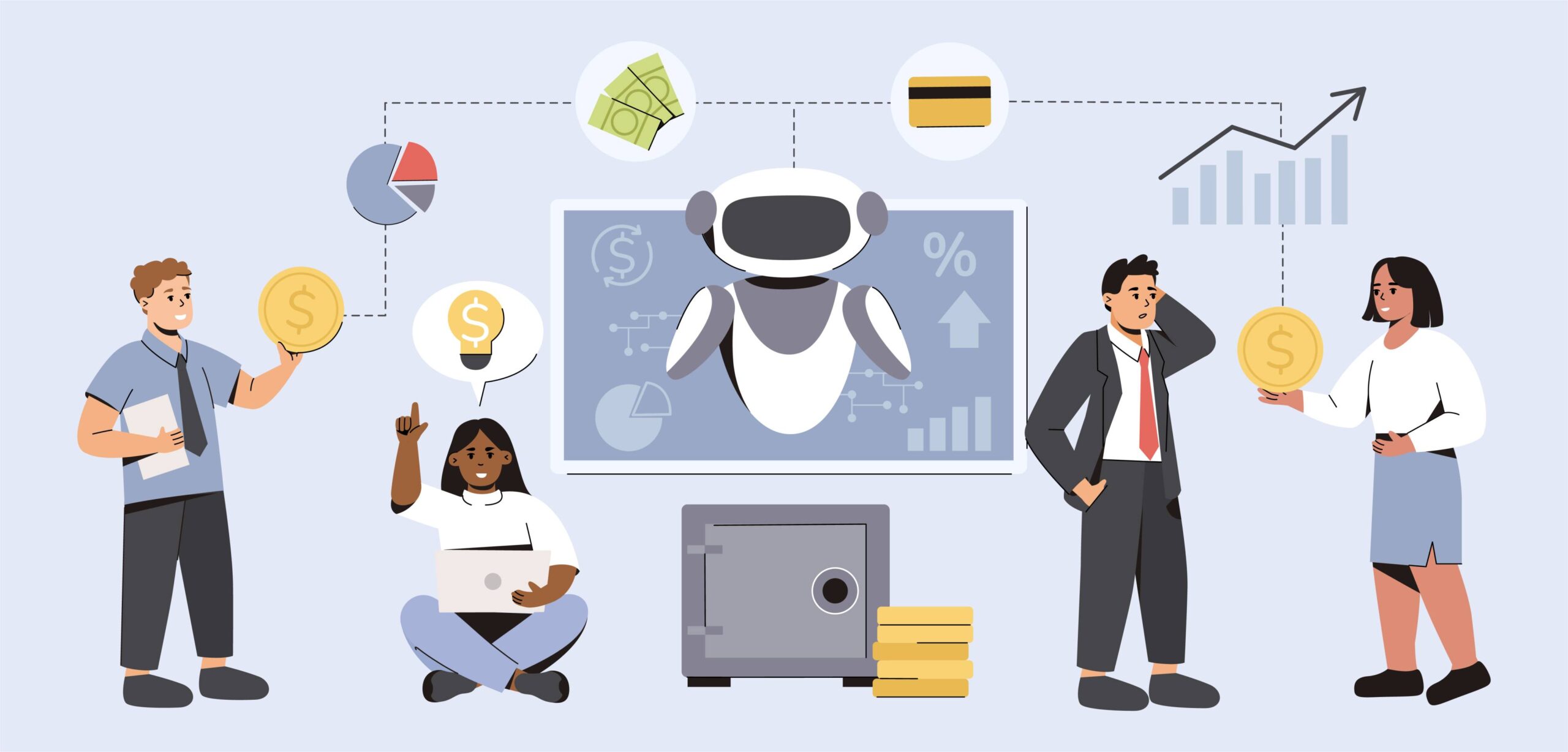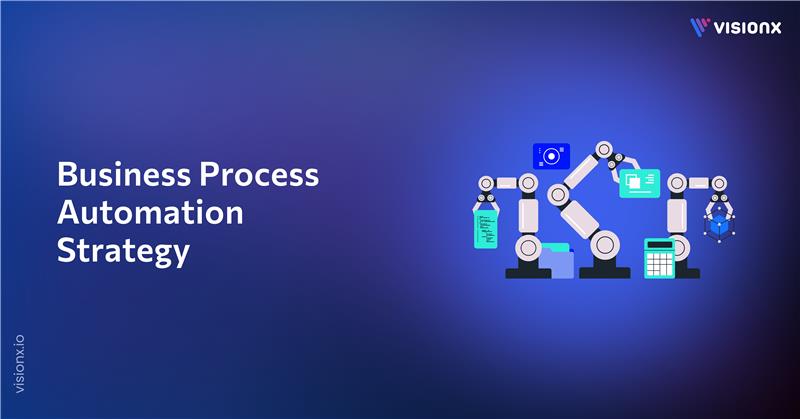Artificial intelligence (AI) is the simulation of human intelligence in robots intended to conduct operations that generally call for human thought. It uses AI, machine learning, natural language processing, and robots to perform decision-making, reasoning, and problem-solving activities.
Fintech companies, among others, can benefit from AI’s ability to improve automation and boost operational efficiency. Financial technology, shortened to “fintech, ” describes how technology is incorporated into financial services, encompassing features like digital wallets and online payment processing.
Most fintech companies use technology to enhance user experience, accessibility, and financial transactions in the financial industry. AI is a perfect fit for fintech because of their shared aims.
Fintech and AI are impacting the financial industry by providing innovative solutions that can boost security, speed up procedures, enhance service delivery, and provide customers with tailored experiences. These technologies can create new benefits and uses, including automated stock trading, fraud detection, and individualized financial advice and investment plans.
How Does Fintech Use AI?
Fintech has a wide range of applications for AI. Here are a few examples.
Customer Service
Fintech companies can use chatbots and virtual assistants to use AI for customer care and offer continuous, immediate support. AI algorithms that evaluate consumer data and predict user demands can improve customer experience. When routine processes are automated with AI, client wait times and related operating costs may decrease.
Security
Fraud detection and prevention is a typical application of AI in fintech. Businesses can use machine learning algorithms to look at transaction trends and spot irregularities that could be signs of fraud. Specific systems can identify abnormal conduct and promptly alert the organization to possible hazards, allowing for prompt action on their part.
AI algorithms are constantly learning and adjusting to new methods of fraud. They can also cross-reference various data sources to confirm user identities, encouraging a safer customer environment.
Lending
Some financial organizations are using AI to assess loan eligibility and credit scores. AI algorithms can evaluate risk by examining various non-traditional credit history data points, such as social media activity, payment patterns, and work history. Some think finding creditworthy people missed by traditional approaches could lead to more inclusive financing.
Underbanked communities may have more access to loans, faster decision-making efficiency, and decreased default rates by using AI to fintech.
Risk Management
Financial institutions may deploy AI-powered risk management systems to use machine learning and advanced analytics to predict and reduce possible risks. AI algorithms may analyze large datasets, spotting trends and connections that could point to new dangers. These systems can support proactive risk management by offering real-time monitoring and alarms.
Automated Trading
Fintech companies can use AI for automated trading. They can utilize algorithms to analyze market data, spot patterns, and execute transactions at the best moments without human interaction. AI technologies facilitate rapid decision-making by processing vast volumes of data quickly.
Using past data and current market conditions, machine learning models can continuously enhance trading techniques. This can result in better trade efficiency, decreased human mistakes, and higher profitability.
Customized Financial Guidance
Fintech companies can use artificial intelligence (AI) to give tailored financial advice and investment plans by analyzing consumer data, including spending patterns, risk tolerance, and economic objectives. AI systems can recognize patterns and forecast changes in the market, providing customized recommendations that fit the needs of specific clients.
With this automated and personalized strategy, financial advisors may minimize time-consuming tasks, maximize investment returns, and enhance customer happiness.
What are the Benefits of Using AI in Fintech?
Fintech businesses can significantly benefit from integrating AI into their operations.
| Benefit | Description |
| Cost Savings | Automating data entry and queries related to consumer support can also save costs and enhance productivity. Automation decreases costs, smoothens processes, and raises profitability due to better productivity and time and resource savings. |
| Accuracy | Artificial intelligence (AI) improves accuracy and reduces human error by using complex algorithms to analyze massive volumes of data and identify patterns and trends humans might overlook. Machine learning models increase their predicted accuracy with time, enabling more intelligent business judgments. |
| Security | Artificial intelligence (AI) enhances security and fraud prevention by identifying unusual patterns and anomalies in data sets, detecting potential fraudulent activity, and preventing security breaches. Complex algorithms and ongoing monitoring help protect private financial data and lower the danger of fraud. |
| Customer Satisfaction | AI increases customer satisfaction by providing customized experiences. AI technologies analyze consumer data to provide personalized investment strategies, product recommendations, and financial advice. Continuous support through AI-driven chatbots and virtual assistants improves customer satisfaction and service quality. |
What are the Challenges of Using AI in Fintech?
Fintech companies may face challenges when integrating AI, just as with any new technology.
| Challenge | Description |
| Data Privacy | Fintech organizations deal with sensitive financial data; strong data protection measures are crucial for AI technologies to prevent breakdowns and unauthorized access. |
| Compliance | Fintech companies using AI face challenges with regulations and compliance, as the rapid development of AI can outpace current regulatory frameworks, leading to uncertainty. To avoid consequences, businesses must carefully navigate complex rules. |
| Technical Knowledge and Resources | AI implementation needs a strong technology foundation and qualified staff. The adoption and maintenance of AI systems require knowledge of cybersecurity, data science, machine learning, and other digital capabilities, driving demand for specialist financial workers. Additionally, firms must make significant investments in technology infrastructure to meet the computational needs of AI algorithms. |
What is the Future of AI in Fintech?
Experts predict that fintech organizations will use AI in a variety of creative ways in the future, such as:
- Blockchain and AI are used together to improve transaction processing security.
- Combining AI with quantum computing to analyze data more quickly and accurately.
- Developing robo-advisors is a method to increase access to financial advice.
- Implementing AI-powered credit scoring in additional contexts to reduce risk and provide access to financing for underserved groups.
Final Thoughts
Artificial Intelligence is a significant tool that enables fintech firms to remain ahead in an ever-evolving financial world. Optimizing operations and amplifying innovation may increase client satisfaction.
Artificial Intelligence can be used in diverse ways to enhance productivity, reduce costs, enhance precision, strengthen security, and provide personal customer service in credit scoring, fraud detection, and personal finance consultancy within the firm.
VisionX has provided various software development services for businesses, including customized solutions to meet particular operational requirements. The company offers custom software development services that involve designing and building applications to streamline processes and increase productivity. It also provides mobile application development aimed at developing user-friendly applications for iOS and Android platforms, ensuring that businesses can communicate with their customers efficiently.
With an emphasis on utilizing AI to improve financial operations and decision-making, VisionX offers various fintech-related AI services. They build advanced trading systems with AI predictive analytics so customers can make well-informed financial decisions based on data analysis and market trends.
By supporting businesses in increasing accuracy, cutting operations expenses, and improving client experiences, VisionX eventually promotes innovation in the financial services sector.


